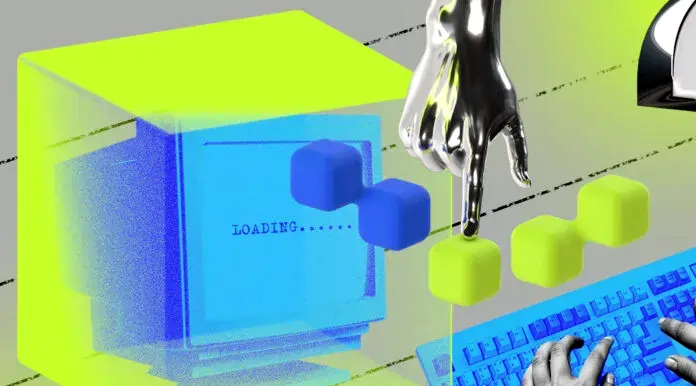Artificial intelligence (AI) is transforming industries worldwide, and software development is no exception. AI-powered automation is revolutionizing how software is designed, coded, tested, and deployed, helping development teams deliver high-quality products faster and more efficiently. By automating repetitive tasks, enhancing code quality, and accelerating development cycles, AI is changing the software development landscape in ways that were once unimaginable.
This article explores the growing influence of AI in software development, how it’s streamlining processes, and why it’s a game-changer for the industry.
What is AI-Powered Automation in Software Development?
AI-powered automation in software development refers to the use of AI technologies—such as machine learning (ML), natural language processing (NLP), and advanced automation tools—to improve and automate various stages of the software development lifecycle. From writing code and detecting bugs to automating testing and deployment, AI is taking over tasks that traditionally required human effort.
By leveraging AI, developers can focus on more complex tasks, while the technology handles repetitive, error-prone activities. This not only accelerates the development process but also improves the overall quality of the software.
Key Benefits of AI Automation for Software Development Teams
1. Accelerating Development Cycles and Reducing Time-to-Market
AI automation significantly speeds up the software development process by automating tasks like code generation, testing, and deployment. This allows development teams to deliver products faster, reducing time-to-market and helping businesses stay competitive. With AI-powered tools, what used to take days or weeks can now be accomplished in hours, freeing up developers to focus on innovation rather than routine tasks.
2. Automating Repetitive Tasks to Improve Efficiency
In any development cycle, there are numerous repetitive tasks—such as debugging, code refactoring, and running tests—that consume valuable time. AI automation handles these tasks with precision, reducing the manual effort required from developers. By taking over these time-consuming activities, AI allows teams to concentrate on more strategic aspects of development, such as designing new features and improving user experiences.
3. Enhancing Code Quality and Reducing Human Error
AI-powered automation tools can analyze vast amounts of code to detect potential errors or inefficiencies. By identifying bugs, security vulnerabilities, and code inconsistencies early in the development process, AI ensures that the software meets high-quality standards. This not only reduces the risk of human error but also improves the overall stability and performance of the final product.
How AI Automation is Transforming the Software Development Process
1. AI in Code Generation and Testing
AI-driven code generation tools, like GitHub Copilot, can assist developers by writing portions of code based on context and past behavior. These tools learn from existing codebases and help developers write faster, cleaner code. Additionally, AI-powered testing tools automate unit tests, functional tests, and performance testing, identifying issues earlier in the development lifecycle.
2. Continuous Integration and Deployment (CI/CD) Pipelines with AI
AI is also streamlining continuous integration and deployment (CI/CD) pipelines by automating the entire process—from code commits to deployment in production environments. AI-powered CI/CD tools monitor every stage of the pipeline, optimizing workflows, and ensuring that code is continuously integrated, tested, and deployed without human intervention.
3. AI for Bug Detection and Issue Resolution
AI-powered bug detection tools are revolutionizing how teams identify and resolve issues in their code. These tools use machine learning to analyze code for patterns that may cause bugs or security vulnerabilities. By catching these issues early, AI helps developers address problems before they become costly or disruptive in later stages of development.
Accelerate your team's software development workflow
Get in touch with our expert team to unlock faster, smarter, and more efficient development.
Get In Touch →AI-Powered Tools and Platforms for Software Developers
The rise of AI automation has led to the development of various AI-powered tools that are reshaping how software is built. Some of the most popular tools include:
GitHub Copilot
An AI-powered coding assistant that helps developers by suggesting code snippets, functions, and entire blocks of code based on context.
DeepCode
An AI-based platform that analyzes code and provides real-time suggestions to improve code quality and security.
CircleCI
A CI/CD tool that uses AI to automate the testing, building, and deployment of software projects.
Cursor
An AI-first code editor designed to streamline workflows with intelligent code suggestions and automated debugging.
These platforms are helping developers enhance productivity, improve code quality, and accelerate delivery timelines.
AI for Optimizing Project Management in Software Development
AI isn’t just transforming how code is written and tested—it’s also improving how software development projects are managed. AI-powered project management tools provide real-time insights into team performance, resource allocation, and project timelines. By leveraging predictive analytics, these tools help project managers make data-driven decisions to keep projects on track and within budget.
Predictive Analytics for Timelines and Risk Management
AI tools can analyze past project data to predict future outcomes, such as delivery timelines and potential risks. This allows project managers to allocate resources more effectively and mitigate potential bottlenecks before they occur.
How AI Automation Improves Collaboration Among Development Teams
AI-powered tools are also improving communication and collaboration among software development teams. By automating tasks such as code reviews, bug tracking, and project updates, AI reduces the need for manual reporting and ensures that team members have access to real-time information. This helps streamline workflows and enhances cross-functional team coordination.
AI-Driven Tools for Communication
Tools like Slack and Jira have integrated AI features that assist in managing communication, project tasks, and tracking progress, ensuring that all team members are aligned throughout the development process.
Real-World Applications of AI Automation in Software Development
Businesses across industries are leveraging AI-powered automation to enhance their software development processes. Here are a few examples of how AI automation is being used in real-world applications:
1. AI for Accelerated Development in FinTech
A financial technology company used AI-powered automation tools to accelerate the development of a new mobile banking platform. By automating code generation, testing, and bug detection, the company was able to launch the platform months ahead of schedule, saving both time and resources.
2. AI-Driven Automation in Healthcare Software
A healthcare provider integrated AI automation into its software development process to streamline the creation of patient management systems. AI tools helped automate data entry, testing, and security checks, ensuring that the system was both compliant with healthcare regulations and secure.
3. AI in E-Commerce Development
An e-commerce company implemented AI automation to manage its CI/CD pipeline, reducing deployment times and improving site stability during updates. The use of AI-driven tools allowed the company to push new features to production without interrupting service.
Challenges and Considerations for Implementing AI Automation in Software Development
Despite the numerous benefits, there are challenges to implementing AI automation in software development. Development teams may resist adopting AI tools due to concerns about job displacement or the complexity of integrating AI into existing workflows. It’s important for businesses to address these concerns and ensure that AI tools are seen as collaborative, rather than replacement, solutions.
Managing Data Privacy and Security Concerns
As AI tools often require access to sensitive codebases and project data, businesses must prioritize data privacy and security when integrating AI automation.
Aligning AI Automation with Development Team Goals
It’s essential to ensure that AI-powered automation aligns with the broader goals of the development team, helping them achieve higher productivity and efficiency without disrupting established workflows.
The Future of AI Automation in Software Development
The future of software development is undoubtedly intertwined with AI-powered automation. As AI technologies continue to evolve, we can expect even more sophisticated tools that further streamline development processes, improve code quality, and reduce time-to-market. Emerging trends such as AI-driven autonomous coding, advanced predictive analytics for project management, and deeper integration of AI into the CI/CD pipeline are likely to shape the future of the software industry.
Ready to revolutionize your software development process?
Our team of experts can help you implement AI solutions that accelerate development, reduce costs, and improve product quality.
Let's Talk →
Subscribe to our newsletter to stay updated on the latest trends in AI-powered automation and how it’s transforming the software development landscape.





